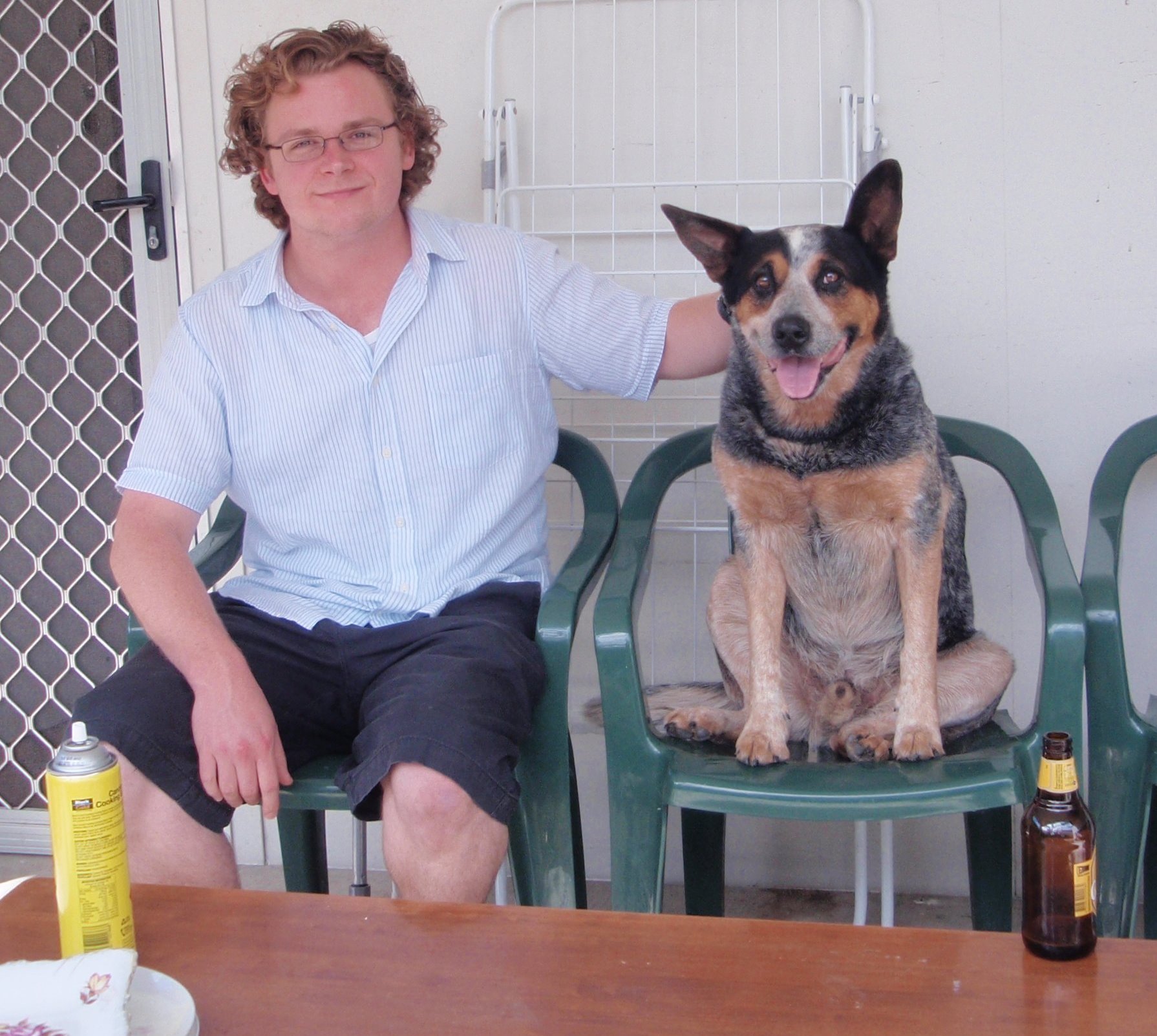
by Sarah Blinco | Jul 23, 2014 | Expat living in London, Travel blogger destinations
“Rip it off like a band-aid,” I said.
“What?” Replied my brother.
“Rip it off like a band-aid,” I repeated, “You know, make it quick.”
“Oh, right,” he answered.
I was referring, of course, to our final goodbyes – the worst and only bad part about leaving one home to go and live in another that just happens to be far across the seas. I once had a conversation with a friend of mine, Melissa, who loves the UK like I do. We only wish England and Australia were closer. Yes, theoretically it’s only a flight away, but it’s a big one, and in some instances seems rather too long, tiring and expensive. Of course, these aren’t points I bring up when trying to make my mum feel better about me leaving, or things I dwell on when I’m sad about leaving my loved ones and my dog.
This past week was lovely but quite draining. If I could leave without saying goodbye to anyone I would. Not because I’m heartless and rude – the opposite in fact. I don’t like goodbyes and really didn’t know how it would all end.
Last time around I left with a heavy heart and eyes overflowing with tears. It’s not that I didn’t feel the same this time, but I discovered the way to deal with such situations – humour. I can thank my brother for that. I’d spent weeks worrying about final goodbyes with some of my best friends and my lovely mum-in-law, sisters-in-law and of course my immediate family. On the Gold Coast though, my time with good friends was spent laughing, not being sad. And at home with mum in Brisbane, Josh, my brother, simply turned potentially teary moments into funny ones. Like when my mum started to get upset over a lunch, instead of telling her to turn off the tears (the only tactic I know!), he made a reference to the “Last Supper”, and then we were laughing.
Leading up to my departure too, we had a terrific dinner at a fab Japanese Izakaya restaurant called Wagaya, which was filled with laughter and bubbles (champagne, that is – my idea, of course). We transformed trembling lips into fun moments, and instead of “consoling ourselves” about the end of things as they are, we planned for the future and talked about all the good things we’ll do together.
We reached the train station with only a few minutes to spare, which was ideal because there wasn’t time to get too upset. Hug it out, wipe away tears and bid a quick farewell. Rip it off like a band-aid. It’s just easier that way, in my opinion.
3 lessons I’ve learned on how to cope with the goodbyes that matter
1. Don’t dwell on the negative or on being sad. You can end up in that space for hours, and to what end?
2. Love and laughter are the answer – laughing trumps tears every time.
3. Drink champagne and celebrate all the things you have to be grateful for and happy about. Life is an adventure – always drink to that.
On a final note though, I’ve realised something else important – that I’m lucky to have even one person, let alone a few, who would shed a tear about me not being closer by, just as I shed a broken-hearted tear (or rather, several) over having to leave my dog behind. Is that really how my mum feels? It’s traumatising, but that’s a whole other post, unless I take my own advice written down here.
Fellow expats – what’s your experience saying goodbye? Do you have tips to share for those who are leaving and/or those that stay behind?

by Guest contributor | Jul 10, 2014 | Career and mindset

I’m not sure if change is the enemy or comfort is? We have all been there, we lose our job, our partner leaves us, you move to another town and of course the fact that nothing ever is NOT changing. What is it about change that makes us so fearful? Is it that we are so protective of our comfort or is it that comfort has made us soft to the wonders of change − why can’t change be comfortable and comfort changeable?
I have often pondered this dilemma, if you will, and I have some conclusions and ideas around the notion of change.
What is it that comfort, also referred to as certainty, gives us? For starters it gives us certainty; certainty means we have control and aren’t likely to be thrown into a situation where we might not know what to do.
Comfort is familiar, it’s secure and we know every nook and cranny of our comfort zone, which gives us some relief and reduced stress or difficulty.
How comfortable can we be if we are at the mercy of our comfort, and the minute something shatters this comfort we go to bits? Wasn’t our comfort once an uncertainty, an unknown too?
Change, even when it feels excruciating, I believe, is life’s way of saying, “have a pit stop and think about how you would like things to be now; what changes and amendments would you like to make?”
Sometimes change is unwanted, but we must deal with it. The truth is, even when change is unwanted, it’s an opportunity to evolve into something better. Coping with change, I think, is a shift in mindset. We can see it as something scary, unknown, full of uncertainty or not; we could see it as opportunity and a breather.
Change may feel uncomfortable, but if you are here reading this, have you not survived it? Have you not learned and grown from it? And just maybe you are in a better place than before the change occurred.
8 practical tips for dealing with change
1. Don’t over think it, understand why it has occurred but don’t let your imagination take over. It’s very easy for the mind to over embellish things.
2. Consider the positives to have come from this change. There will always be positives, you may just have to look a little harder sometimes.
3. Start making a list of things that are in your control that you can start putting into action to regain your stability.
4. Consider how you would like things to be and what you would like to be doing moving forward.
5. What are some of the mistakes that have occurred previously that you can learn from and make positive adjustments with?
6. Make time for some learning and meditation and journal your thoughts.
7. Make time to hang out with trusted friends and get out of your head for a bit.
8. Move, move, move, take action and do not procrastinate; make your to-do list, your action plan and run with it.
I can’t promise you that change will ever be painless. Sometimes it will be, sometimes it will hurt, but how much it does or doesn’t depends on whether we seek to latch onto the certainty of a comfort no longer in our lives or surrender to the certainty of change and all the good it can bring us.
By Petros Galanoulis – Dip Life Coaching, Vedanta Studies.

by Guest contributor | Jul 7, 2014 | Career and mindset
If you’ve not encountered the basics of law of attraction exercises, read on. Small changes in your habits and mindset can have a huge impact on the reality around you.
“The future belongs to those who believe in the beauty of their dreams” –Eleanor Roosevelt
Dreams and law of attraction exercises
When we sleep, we dream. On average, adults dream four to six times per night during a stage called Rapid Eye Movement. Dreams are a powerful source of insight, and we can harness them as part of our law of attraction exercises suite of tools, to improve any aspect of our lives.
It’s important we listen to our dreams as it’s the language of the universe talking to us. If we can understand and decipher the symbolism in our dreams, we can tap into the hidden messages being revealed to us, empowering us to live our true destiny.
In my clinic I often tell my clients who are having problems or difficulty making a decision to ‘sleep on it’. This allows your subconscious mind an opportunity to solve the problem.
It’s surprising how your dreams can provide helpful advice, whether we ask for it or not. Law of attraction exercises working their magic!
Many of my clients tell me that that don’t dream or can’t remember their dreams. This means they are missing out on tapping into a powerful source. Here are five strategies to help remember your dreams.

5 ways to listen to your dreams to turn them into reality
Law of attraction exercises: sleep prep
As you prepare for sleep say, “When I wake up I will remember my dreams”.
You are giving your subconscious mind a direct order that you want it to help you remember your dreams.
Law of attraction exercises: crystals
Place Howlite crystals near your bed.
Law of attraction exercises: writing
Keep a notebook close by and during the night or upon rising, jot down your dreams while they are fresh in your mind. Include as much detail as possible including colours, objects, people, emotions or symbols.
Law of attraction exercises: dreaming
Buy a dream dictionary, or download an app so you have a reference guide to interpret your dreams and their meanings.
Law of attraction exercises: waking up
Try to wake up slowly and relaxed (rather than to the startle of a buzzing alarm clock). Those first moments of waking between sleeping and dreaming provide a clear insight into your dreams.
Remembering your dreams
If after a couple of weeks, you still can’t remember your dreams don’t give up, give yourself time, it takes practice and perseverance.
Have the persistence and strength to follow through. I tend to dream more when I’m relaxed and in tune with myself and have absorbed powerful and vibrant energy from places of nature.
I often advise my clients who are stressed, anxious and unable to turn off the ‘mind chatter’ to get back to nature, it provides everything we need to revive mind, body and spirit. Being calm and having a quiet mind allows you to tap into the universal mind and receive your visions and ideas.
Remembering and interpreting life changing messages in your dreams provides the insight into making your dreams a reality. Write down your ideas and insights and start a plan of action. You are showing your intention to the universe that you are ready to turn your dreams into a reality.
Everything you see began with someone’s dream, a vision. Decide to take action, have faith in yourself, a desire and a strong expectation to succeed. Let your dreams serve you, so you can draw inspiration, insight and guidance from your night travelling adventures. Your dreams are yours, become limitless.
Let your dreams enhance your possibilities, inspire and motivate you. When you listen and absorb the messages, creativity will follow. Become a life artist, create the life you want for yourself.
Begin it now, life is too short, listen to your dreams, live your dreams.
Make changes
Want more practical law of attraction exercises and advice? Read more here about how to implement gratitude, manifest money and mindset miracles to make shifts in your reality.
Do you take heed from your dreams? What are your experiences manifesting or working with the law of attraction? Let us know in the comments.
About the writer Luke Sheedy is a gifted life advisor, motivator and free thinker. He combines his metaphysical talents to advise clients on their natural strengths, talents and abilities. Luke helps release what is holding you back, so growth can occur and your life’s plan can unfold naturally.

by Sarah Blinco | Jun 24, 2014 | Career and mindset, Lifestyle
A garage sale isn’t the likeliest of places to experience an epiphany, but upon reflection after a very hectic few hours, I realised I’d gained more than a few dollars out of the experience.
How we can learn from the humble garage sale
- The trash and treasure thing is totally true! I couldn’t believe the way people’s eyes lit up on seeing some items that I had come to take for granted. Everything from bags to lamps and linen. “Someone’s trash is someone else’s treasure”; it’s absolutely true, and a really good reason to never ever just throw something in the garbage. If it can be loved in a new home, then find it a new home.
- Everyone wins when bartering. Our market society here isn’t such that we barter for goods – generally, we simply pay what’s on the price tag. I think it’s human nature to haggle however, and bartering was rife during our Saturday morning everything-has-to-go clearance sale! The beauty of this was that everyone ended up smiling – and winning. Price starts high then is beaten down, then goes back up, and haggled down again; where we meet in the middle is the point where everyone feels like they’ve won, just a little bit.
- It’s far more rewarding to be fair rather than greedy. People can buy all manner of items cheaply these days, and we had a lot of really nice goods for sale at unbeatable prices. Because we were totally reasonable with our price expectations, we off-loaded 85 per cent of what we needed to in one day! Not only that, but it was nice to be able to pass on our pre-loved furniture and homewares to young couples and others making the most of their nests on a budget. It was a good feeling to be able to send our treasures into another life where presumably they’ll also be appreciated.
- People love a bargain. They also love stuff – lots and lots of stuff. I was actually surprised at what people wanted – foreign language television series’ on DVD, business books, vintage trinkets, kitchenware… and they arrived early too – an hour or more prior to the advertised start time. Advertise a garage sale and the crowds will come! Gumtree worked really well for us, Facebook promotion not so much. Next time I might live-stream it though, that would be novel.
- People are nice. I don’t know why I was so surprised by this, but all the people who came through our house bargain-hunting on the weekend were lovely; interesting folk from a range of backgrounds and ethnicities, all smiles and full of positive words about our big move to London. To me, it had almost a nostalgic 1950s feel to the whole experience. We’ve lost that old friendly, neighbourly or community vibe in many contemporary settings, but on our morning of garage sale mania, that’s exactly what it felt like – all men, women, kids and dogs congregating as mates, smiling, chatting (or wagging tails) and bonding over similar tastes in TV shows, books, films and style. All that was missing were kids selling home-made lemonade on the footpath.
- Everyone has a story, and it was a nice opportunity to be able to contribute. Our belongings had to be shed because they would simply rot up here in the tropical northern heat if we’re away for any length of time, as planned. That is our story, but people came to us with their stories – some being new to town, others with babies on the way or renovating. In fact, some stories resonated so much with us that we dug up books and resources and handed them over for free, in the hope that they would inspire our visitors on their new business or life paths. Whether our goodies were bought or we donated them, it’s lovely to feel we have bonded with all our “customers” in small yet significant ways.
- It’s good to be unattached. Once upon a time I don’t think I would have dealt with letting all my worldly possessions go. Our house is literally bare – even the dog is mildly confused about what’s going on (though he is fairly laid back so has since found new “favourite corners” to nap in). By the end of the day, Cooper and I didn’t feel lost at all without our “stuff”, even though some of it we had had in our possession since we first met 13 years ago. Things are just things though, to be enjoyed, traded, passed on and put to good use time and time again. It’s actually quite liberating letting all of it go. If only my suitcase had it that easy!
Have you ever sold or given away all of your belongings? Drop me a line in the comments below, I’d love to hear about your experience. -Sarah

by Sarah Blinco | Jun 23, 2014 | Expat working in London, Move to the UK
I’m super excited that my visa finally came through, but it wasn’t all smooth sailing. Is it your dream to live the expat life in the UK too? Here are five lessons I learned applying for a visa to live and work in the UK.
Live in the UK visa application tips
- Use an agent – unless you’re applying for a very straightforward visa like the two year working/youth mobility visa, engage assistance from someone on the ground because it really isn’t as easy as you might first assume, especially when technical errors arise during the application process as they did for me.
- Keep your filing and documents in order. I’ve been so busy over the past year that my filing isn’t as organised as it used to be (read: paperwork was all over the shop). I swear I’ll never be disorganised on that front again!
- Save your dollars – visas aren’t cheap, but you also need to demonstrate you can fund your own way.
- Get things moving in good time, and follow up – these processes tend to be slow, and the longer it drags on the more stressful it becomes, so don’t be behind the door at following up and asking questions.
- Work out a rough time frame before you apply for your visa – most visas require that you enter the country within 6 to 12 months of approval, and you’ll need to put an estimated date of departure on your application. The benefits of planning however, mean you can budget accordingly for not only your visa, but flights, rent deposit (sometimes six weeks is required in London now), general rent and expenses until you find a job.
Do you have other tips, or maybe a question? Please drop me a line in the comments below -Sarah :-)
Join the conversation – follow #TLL-London on all social media








